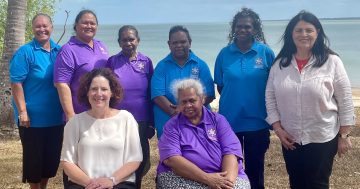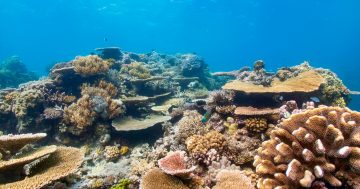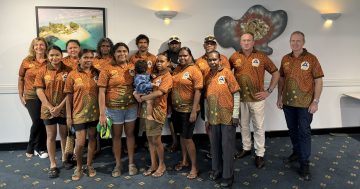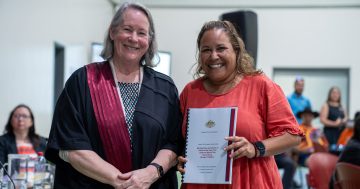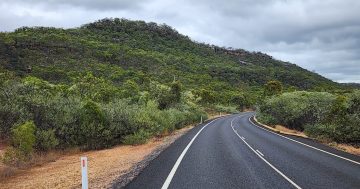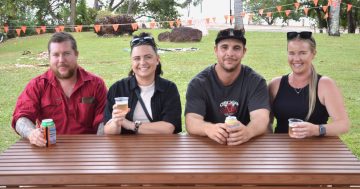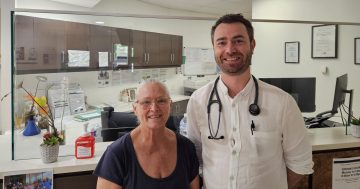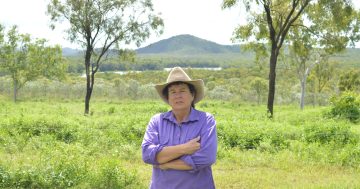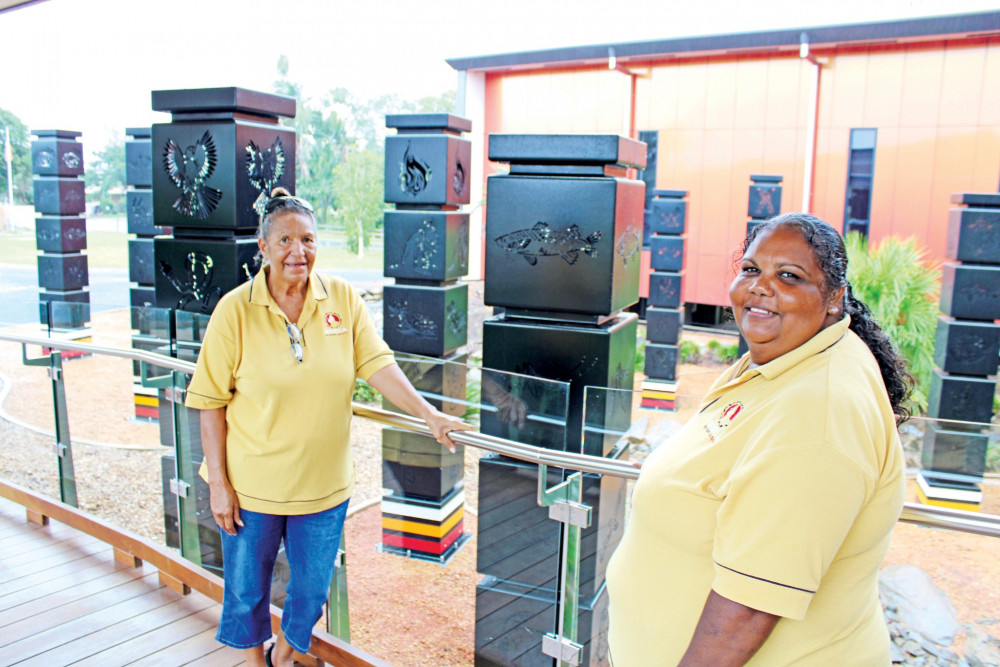
The two chairs at Western Cape Communities Trust – Marie is the head of the main trust and Flo leads the coordinating committee – are out to pave a stronger future for Traditional Owners.
“When I was young there wasn’t much opportunity,” Marie said of growing up in Napranum, then known as Weipa South.
“Being a part of the WCCCA has built a lot of confidence in myself and confidence is a big plus for us – we should help our people to speak up.”
Marie said her older sister was an inspiration when growing up and that she hoped she was now a strong leader in her own right.
“What makes me proud is that I get to represent all of us as part of the 11 Traditional Owner groups,” she said.
“We talk and work together for our people.”
Marie is a proud Peppan woman who values her connection to country, which is located in the area around RAAF Base Scherger.
“It’s important that we get out on country and talk, have campfires and engage with our young ones.”
Flo, or Aunty Flo as most refer to her, is a Taepadhighi/Mpakwithi woman who was born at Mapoon before her family was forcibly removed by the Queensland government.
“They sent families to all parts of Queensland, including Cairns, Townsville, Weipa, the NPA and cattle stations,” she said.
“Our family was sent all the way to Stanthorpe.”
For those who haven’t been to Stanthorpe in the state’s south-east, it’s a fair bit colder than Cape York as temperatures drop below zero in the winter.
However, the Chargers made the best of the situation they were dealt and Flo said her mother Joyce was an inspiration.
“She became involved in guilds and committees. She encouraged us to take part in the community,” Flo said.
Her mother also made a decision to go back to school and become a teacher when she was in her 40s.
“She started training and secured a job in Napranum and dad stayed in Stanthorpe,” Flo recalled.
“Mum really valued education.”
A young Flo went off to study at university and finished with a degree in Community Development and Aboriginal Studies.
She moved back to Napranum and found an administration job with Comalco.
“I had to ask permission from the Weipa South council,” she said.
“That’s just the way it was at the time.”
Flo worked in a few different areas but there was always a sense of unfulfillment.
She decided to apply for work with the health department, and was able to deliver health education to the Western Cape for more than 10 years.
Today, she is a role model and mentor for both men and women in the local community.
This month marks 20 years since the Western Cape Communities Co-Existence Agreement was signed by the 11 Traditional Owner groups from the region.
The Traditional Owners entered into an Indigenous Land Use Agreement over the mining lease areas with Comalco, now called Rio Tinto Weipa.
The agreement was registered with the National Native Title Tribunal on August 24, 2001.
Flo was around at the time of the negotiations but said it was her older sisters who were more involved in the Agreement on behalf of the clan group.
“I remember the negotiations took time,” Flo said.
The results have been positive, both Marie and Flo agreed.
“We are better off than we were before,” said Marie.
“But we still have work to do.”
Flo agreed: “It is one of the best agreements in the country and the integrity of the agreement is what makes it so good and strong.
The next challenge is to ensure the next generation of Traditional Owners continue to improve on the foundations that have already been set by their Elders.
“We have still got a lot of work to do,” Marie said.
“There are ways we can be better and do things differently.”
Flo added: “We are strong and we can move mountains if we want to.
“It’s about finding that strength and leadership within ourselves.”


